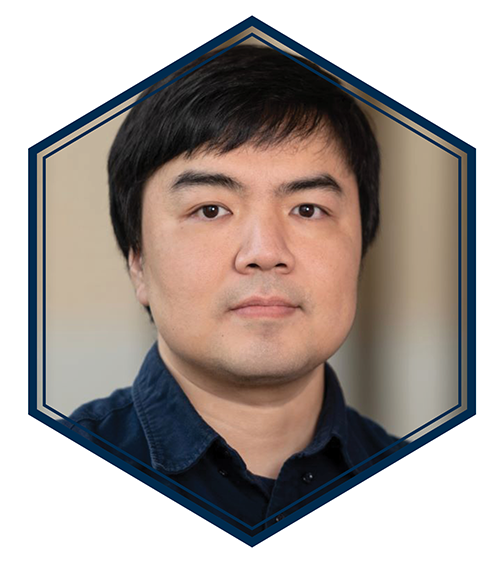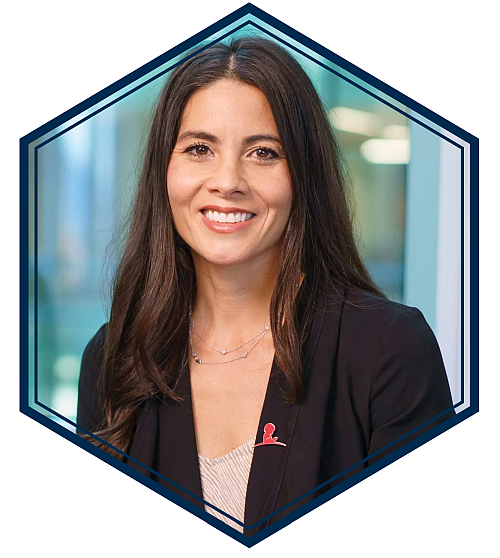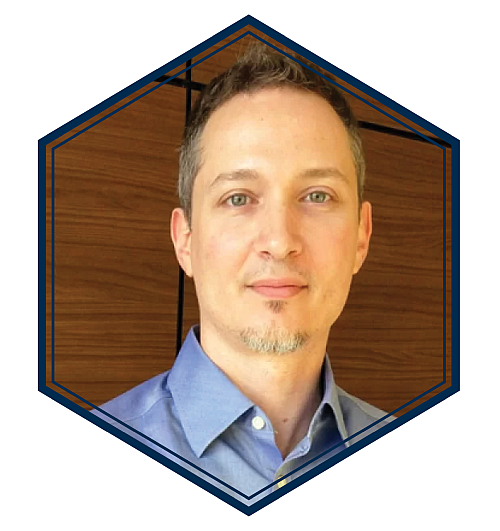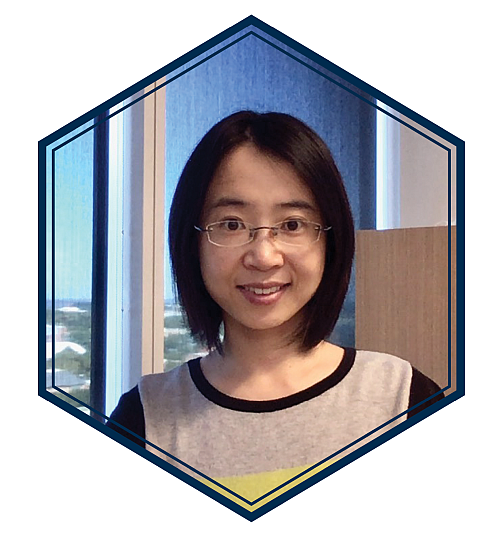
Atlanta Workshop for Single-Cell Omics
April 11-12, 2024
Georgia Institute of Technology Marcus Nanotechnology Building 1116-1118
345 Ferst Drive NW | Atlanta, GA 30322
April 11th Agenda
| 8:30am - 9:00am | Registration and Continental Breakfast | |
| 9:00am - 9:20am | Opening Statements | Saurabh Sinha – Co-Director of the Atlanta Single-cell Omics and Analytics Initiative (ASCOmAI), Georgia Tech |
| Julia Kubanek – Vice President for Interdisciplinary Research, Georgia Tech | ||
| Ravi Bellamkonda – Provost and Executive Vice President for Academic Affairs, Emory University | ||
| Melissa Davis – Senior Vice President for Research, Morehouse School of Medicine | ||
| Manoj Bhasin – Co-Director of the Atlanta Single-cell Omics and Analytics Initiative (ASCOmAI), Emory University | ||
| 9:20am - 10:40am | Session I: Translational Single-cell Omics | Session Chairs: Saurabh Sinha, Georgia Tech & Peng Qiu, Georgia Tech |
| 9:20am | KEYNOTE TALK I: Integrative Modeling of Multiscale Single-Cell Spatial Epigenome | Jian Ma, Carnegie Mellon |
| 10:05am | Evaluating the Impact of Rare Variants on Gene Expression Using Expression CROP-Sequencing | Emily Greenwood, Georgia Tech |
| 10:25am | Inflammation Associated Immune Impairment Drives Rapid Progression in Multiple Myeloma | William Pilcher |
| 10:45am | Coffee Break | |
| 11:00am - 12:20pm | Session II: Multimodal Single-Cell Omics | Session Chairs: Saurabh Sinha, Georgia Tech & Swati Bhasin, Emory |
| 11:00am | Single Cell Multiomic Analysis of the Role of Arid1b in Fetal Brain Development and Neurodevelopmental Disorders | Yonina Loskove, Emory |
| 11:20am | Arterial cell Reprogramming Induced by Disturbed Flow and Hypercholesterolemia During Atherogenesis | Christian Park, Georgia Tech |
| 11:40am | Integrated Single-nuclei and Spatial Transcriptomic Approach Reveals Acute Endothelial Injury During Vein Grafting Procedures Validated by RNAScope | Marina Michaud, Emory |
| 12:00pm | PFHpA Alters Lipid Metabolism and Increases the Risk of MASLD in Youth—a Translational Research Framework | Brittney Baumert, Keck School of Medicine |
| 12:20pm - 1:30pm | Lunch | Marcus Nanotechnology Atrium |
| 1:30pm - 3:00pm | Session III: Translational Single-cell Omics | Session Chairs: Manoj Bhasin, Emory University & Xiuwei Zhang, Georgia Tech |
| 1:30pm | KEYNOTE TALK II: Is Spatial Omics the New Single Cell Omics? | Jasmine Plummer, St. Jude Children's Research Hospital |
| 2:15pm | Making a Model: Examining Distinct Transcriptional Programs Between Perianal Crohn’s Disease Patient-Derived Organoids and Corresponding Mucosal Epithelium Using Single-Cell Transcriptomics; | Shanta Murthy, Emory |
| 2:35pm | A Single-cell RNA Sequence Approach in Assessing P311’s Impact on the Brown Adipocyte Heterogeneity in Brown Adipose Tissue | Steven Moreton, Morehouse School of Medicine |
| 3:00pm - 4:00pm | Session IV: Advances in Single-Cell Omics Technologies | Session Chairs: Maneesha Aluru, Georgia Tech & Kamesawara Badri, Morehouse School of Medicine |
| 3:00pm | Accelerating Breakthroughs Using Single Cell and Spatial Tools | Ryan Mote, Science and Technology Advisor, 10X Genomics |
| 3:20pm | In-situ Sequencing with the G4X: Enabling Spatial Biology at Scale. | Fred Souret, Lead, US East Sequencing and Spatial Sales, Singular Genomics |
| 3:40pm | MMRF Initiated Projects to Reveal Immune Microenvironment of Multiple Myeloma at a Single Cell Resolution | Chaitanya (Chuck) Acharya, Lead Scientist, Multiple Myeloma Research Foundation |
| 4:00pm | Adjourn |
April 12th Agenda
| 9:00am - 10:30am | Session V: Keynote Symposium | Session Chairs: Tony Pan, Emory & Hanjoong Jo, Emory |
| 9:00am | Spatial Tissue Profiling: from a Novelty to a Discovery Powerhouse | Ioannis Vlachos, Harvard Medical School |
| 9:45am | Studying Single Cells Through Multi-Omics and Spatiotemporal Context | Xiuwei Zhang, Georgia Tech |
| 10:30am | Coffee Break | |
| 10:45am - 12:05pm | Session IV: Single-Cell Omics & AI | Session Chairs: Kamesawara Badi, Morehouse School of Medicine & Greg Gibson, Georgia Tech |
| 10:45am | Spatial Morphoproteomic Features Predict Uniqueness of Immune Microarchitectures and Responses in Lymphoid Follicles | Thomas Hu, Georgia Tech |
| 11:05am | Predicting Spatial Location from Gene Expression: A New Analytical Approach to Spatial Transcriptomics | Yeojin Kim, Georgia Tech |
| 11:25am | parDoub: Parallelized Doublet Detection for scRNA-seq | Kiersten Campbell, Emory |
| 11:45am | Discovering Cell Types and States from Reference with Heterogeneous Single-Cell ATAC-Seq Features | Yuqi Cheng, Georgia Tech |
| 12:05pm - 1:30pm | Lunch | Marcus Nanotechnology Atrium |
| 1:30pm - 3:30pm | Poster Session | |
| 3:30pm | Awards Session | Session Chairs: Ahmet Coskun, Georgia Tech, Lokesh Guglani, Emory University & Alex Quarshie, Morehouse School of Medicine |
| 3:50pm | Closing Remarks | Manoj Bhasin & Saurabh Sinha |
| 4:00pm | Adjourn |
Keynote Speaker Details
Integrative Modeling of Multiscale Single-Cell Spatial Epigenome
Jian Ma | Ray and Stephanie Lane Professor of Computational Biology, School of Computer Science, Carnegie Mellon University
 Abstract: Despite significant advancements in high-throughput data acquisition in genomics and cell biology, our understanding of the diverse cell types within the human body remains limited. Particularly, the principles governing intracellular molecular spatial organization and cellular spatial organization within complex tissues are still largely unclear. A major challenge lies in developing computational methods capable of integrating heterogeneous and multiscale molecular, cellular, and tissue information. In this talk, I will discuss our recent work on creating integrative approaches for single-cell spatial epigenomics and transcriptomics. These methods hold the potential to reveal new insights into the fundamental genome structure and cellular function, as well as the spatial organization of cells within complex tissues, across a wide range of biological contexts in health and disease.
Abstract: Despite significant advancements in high-throughput data acquisition in genomics and cell biology, our understanding of the diverse cell types within the human body remains limited. Particularly, the principles governing intracellular molecular spatial organization and cellular spatial organization within complex tissues are still largely unclear. A major challenge lies in developing computational methods capable of integrating heterogeneous and multiscale molecular, cellular, and tissue information. In this talk, I will discuss our recent work on creating integrative approaches for single-cell spatial epigenomics and transcriptomics. These methods hold the potential to reveal new insights into the fundamental genome structure and cellular function, as well as the spatial organization of cells within complex tissues, across a wide range of biological contexts in health and disease.
Bio: Jian Ma is the Ray and Stephanie Lane Professor of Computational Biology at the School of Computer Science at Carnegie Mellon University. His lab focuses on developing computational methods to study the structure and function of the human genome and cellular organization and their implications for evolution, health and disease. He currently leads a multi-disciplinary NIH Center, as part of the NIH 4D Nucleome Program. His recent work has been supported by NIH, NSF, CZI, Google, and the Mark Foundation. He has received several awards, including an NSF CAREER Award and a Guggenheim Fellowship (in Computer Science), and is an elected Fellow of AAAS.
Visit the Ma Lab Website
Is Spatial Omics the New Single Cell Omics?
Jasmine Plummer | Director, Center for Spatial OMICs, St. Jude Children’s Research Hospital

Abstract: Genomics has changed scientific research by allowing us to understand the interplay between genes and their environment. Like others in the field, Dr. Plummer adopted single cell genomics when the technology first arose as a means to better understand genetic perturbations and how they contribute to disease pathogenesis. She will be discussing the potential of spatial omics to being even more informative in the discovery in this area. Dr. Plummer will provide examples from her own research of how spatial omic technologies have offered insight into her work where single cell was limited. This session will contectualize what spatial omics can to help assess the spatial organization and cell types within niches and understand their intercellular communication.
Bio: Dr. Jasmine Plummer received her PhD in Molecular Genetics from the University of Toronto and completed a Master’s degree in neuroscience with a speciality in comparative neurobiology and neurodevelopment at Dalhousie University in Nova Scotia, Canada.
Dr. Plummer’s postdoctoral work at Children’s Hospital Los Angeles implemented a systems biology approach to examine the genetic risk of neurodevelopmental disorders. As an Autism Speaks postdoctoral fellow, her research concentrated on the discovery and functional characterization of gene regulatory networks implicated in the development of autism.
Throughout her career, Dr. Plummer has used a multi-omics approach to examine genetic risk as a factor of oncogenesis across cancers, including ovarian, breast, and prostate, and neurodevelopmental disorders. As Director of the Center for Spatial Omics, Dr. Plummer leverages her extensive research experience and knowledge of data integration, computational pipeline implementation, and program management to lead an omics-centered approach that advances research of pediatric catastrophic diseases.
Spatial Omics Lab at St. Jude's
Spatial Tissue Profiling: From a Novelty to a Discovery Powerhouse
Ioannis Vlachos | Assistant Professor of Pathology, Harvard Medical School

Abstract: Spatial tissue profiling has come with a promise to revolutionize research and clinical decision making. In this talk, I will be presenting efforts empowered with such technologies as well as internal, national, and international initiatives aiming to bring spatial tissue profiling into an era of maturity.
Bio: Ioannis Vlachos, Ph.D., is Associate Professor of Pathology, Harvard Medical School (HMS), and the Director of the Spatial Technologies Unit of the HMS Initiative for RNA Medicine. He also directs the Bioinformatics Unit of the Precision RNA Medicine Core. Ioannis is the co-Director of the Bioinformatics Program of the Cancer Research Institute (CRI), a Member of the Dana Farber / Harvard Cancer Center, and an Associate Faculty of the Broad Institute of MIT & Harvard.
Dr. Vlachos’ research focuses on the optimal use of cutting-edge technologies for reverse translation, including bulk, single cell, and spatial tissue profiling to inform clinical decision making. To this end, his team is developing and applying novel technologies and AI/ML methodologies for data integration and target or biomarker prioritization. His group is creating the necessary data and methods to bring these novel approaches in precision medicine applications.
To enable the community gain access and benefit from the spatial tissue profiling revolution, he established the Spatial Technologies Unit (www.spatialtechnology.org) , with support from the Commonwealth of Massachusetts, Beth Israel Deaconess Medical Center, and the HMS Initiative for RNA Medicine. It is a center of excellence for spatial tissue profiling, providing access to technology, education, and support for entrepreneurship. Dr. Vlachos is working in rendering Spatial Tissue Profiling into a powerhouse for discovery, innovation, and clinical breakthroughs. His team in the Spatial Technologies Unit is transforming research-focused spatial technologies into robust, automated, and highly repeatable production-grade methods.
In 2023 Dr. Vlachos co-founded the Global Alliance for Spatial Technologies (GESTALT, www.globalspatial.org), in an effort to bring together the spatial tissue profiling community and to support world-wide efforts for standards in the field.
Dr. Vlachos work is supported by funding from diverse sources, including NIH (R01, P01, U54), the DoD, foundations, and collaborations with the industry. He is co-PI of a Human Biomolecular Atlas Project (HuBMAP, hubmap.org) Tissue Mapping Center, where his team is using cutting-edge single cell and spatial tissue profiling to interrogate the role of human lymphatic vasculature in health and disease.
10 of his publications are within the 1% most cited as evaluated by ISI/Web of Science.
Ioannis Vlachos Non-coding Research Lab
Studying Single Cells Through Multi-Omics & Spatiotemporal Context
Xiuwei Zhang | J.Z. Liang Early-Career Assistant Professor, School of Computational Science and Engineering, Georgia Institute of Technology
 Abstract: With the advances in single cell technologies, cells are profiled through multiple modalities, and data on samples from an increasing number of individuals are obtained. Data integration methods across batches and modalities are being developed to learn representations of cells in a unified space. I will discuss how we learn biological insights in addition to building integrated datasets through integration methods developed in our lab. In addition, cells were generated in a temporal process and exist in a spatial context. I will discuss how we learn the temporal process and how to leverage temporal information when analyzing spatial data.
Abstract: With the advances in single cell technologies, cells are profiled through multiple modalities, and data on samples from an increasing number of individuals are obtained. Data integration methods across batches and modalities are being developed to learn representations of cells in a unified space. I will discuss how we learn biological insights in addition to building integrated datasets through integration methods developed in our lab. In addition, cells were generated in a temporal process and exist in a spatial context. I will discuss how we learn the temporal process and how to leverage temporal information when analyzing spatial data.
Bio: Xiuwei Zhang is a J.Z. Liang Early Career Chair Assistant Professor at the School of Computational Science & Engineering at Georgia Tech. She obtained her PhD in computer science from EPFL (École Polytechnique Fédérale de Lausanne) in Switzerland, and conducted postdoctoral research at Cambridge, UK and UC Berkeley. Her research focuses on developing methods to analyze single cell genomics and spatial data, including methods to study cell temporal dynamics, to perform data integration and to infer molecular interactions. She is a recipient of an NSF CAREER Award and the NIH Maximizing Investigators’ Research Award.
Zhang Group @GT




